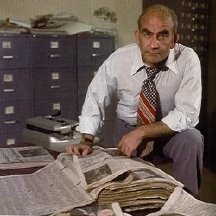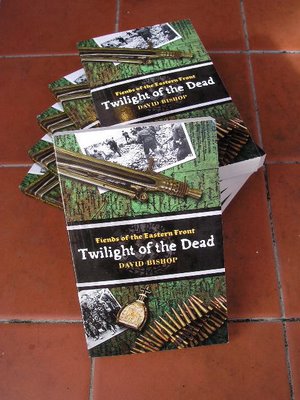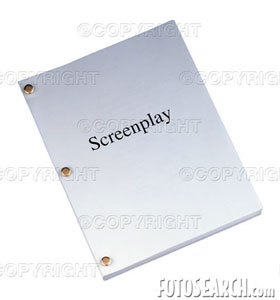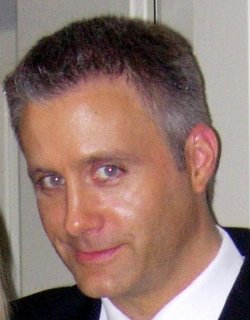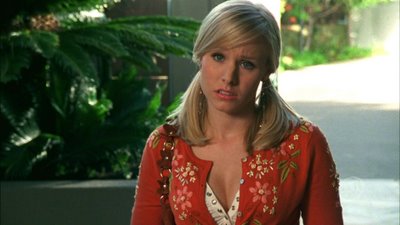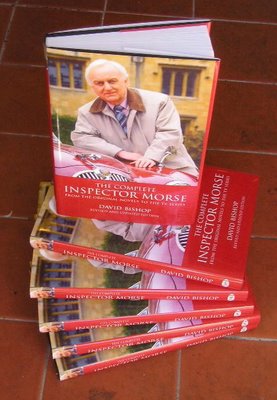I’ve been known to do requests, and a reader asked if I could tell the story of how I secured my first broadcast credit, so here goes…
As a wannabe writer, you’ve got to keep your eyes and ears open for every possible opportunity – no matter how tight the deadlines involved might be. Last Spring the BBC’s Writers’ Room website published the following announcement:-
Writers' Mini Lab • Deadline: 27 May 2005
BBC Scotland Radio Drama in association with Dundee REP are hosting a two day intensive workshop for writers in the Dundee area interested in writing for radio.
The workshop will be led by David Ian Neville (Writer & Radio Drama Producer) and James Brining (Artistic Director, Dundee Rep). During the workshop writers will word with actors from Dundee Rep’s Ensemble Company.
Selection Criteria:
• Places on the workshop are limited. All applicants need to submit with their application a proposal for an original radio play. The idea should not be an adaptation of an existing short story, novel, stage play or film script. The proposal should contain the following: a three line synopsis describing the play. Think of this as the “billing” that might appear for your play in the Radio Times or a daily or weekly newspaper
• a short synopsis giving more detail about the play. Tell us who the main characters are; where the play is set; and what the play is exploring; and in brief, the story. There is no set formula for how to write this - it is not a marketing exercise! Just tell us in your own words and own style about the play; and if in so doing you can reflect the tone and humour of the piece, so much the better
• a three minute extract from your proposed play. This could be one or two scenes and can be from anywhere in the play
I found out about this only a few days before the deadline, but decided it was too good a chance to miss. I’m had a couple of previous meetings with David Ian Neville, but never gotten my arse in gear enough to actually submit anything to him – too busy hacking out paying jobs for wads of cash, instead of enduring penury for opportunity. There’s always tomorrow to tackle that idea you’ve always fancied writing for radio or TV, right?
Maybe. Maybe not. But if you don’t give it a try, you’ll never know.
I knew all that, of course, but have the sort of mentality that responds best to deadlines. Having only three days until the closing date for submissions, I dug into my mental file of ideas to be developed later and created a pitch, a sample scene and a plot synopsis.
To my amazement, I got invited to attend the mini-lab. That meant two days away from paying work, funding my travel and accommodation, and fronting up. But it was a step in the right direction, right?
So I attended the mini-lab in Dundee, learned a lot and found out how much I could enjoy collaborating with other scribes in a pressured environment. At the end of it I came away determined to get my arse further in gear and press on with my radio ideas.
A month or two later, I’d done nothing of the sort. I had gotten myself accepted on the MA Screenwriting course, so that was a step in the right direction. But my efforts to crack radio remained non-existent. Happily, various departments within BBC Radio begin offering the chance to pitch for new writer competitions. There was a quartet of 15-minute slots all about Giving and Receiving [short-listed, but no cigar]; a clutch of slots for a 10-minute piece on BBC7 [short-listed, still no cigar]; and the Sports Shorts competition [not sure I even bother to enter that one, lazy sod that I am].
I was beginning to despair a bit by this point, but others hadn’t given up on me, even if I was in danger of doing so. In December 2005 David Ian Neville phoned to find out how busy I was. When that phone call comes, your answer should always too: ‘Quite busy, but I’m always eager for a fresh challenge – what’s up?’ Okay, maybe not quite that crassly stated, but you get the idea, right?
The opportunity was a slot for a 15-minute radio play, part of an inter-linked week of plays for Women’s Hour. All the other writers were already on board, plenty of work had been done on their ideas, but whomever was meant to scripting the Wednesday play had fallen out of the mix. I never asked the reason why, I was too grateful to be asked along. David sent me all the available material, so I could see if it was something I was interested in.
I read all about Island Blue while eating my lunch. By 1.30 I’d scratched out an idea. By two that afternoon I’d turned that idea into a two-page plot synopsis and emailed it to David. By four that afternoon I’d gotten the verbal go-ahead. After months of trying I’d secured my first broadcast credit in the space of a few hours, thanks to being in the right place at the right time, being quick off the mark to grab an opportunity by the lapels and thanks to the good graces of a development producer who felt I was worth persisting with – thank you, David Ian Neville.
Of course, there were four drafts of the scripts and several long, dark afternoons of the soul before the script got signed off, but that’s the job, right? Come June 7th, I’ll have my first broadcast credit and that’s what I’ll remember most.
If there’s a moral to the above, it’s probably this: be ready when the call comes. Know when to say yes. Keep improving your grasp of the craft, so you can make the most of opportunities. I’ve blown good chances in the past, because I wasn’t up to the job or I simply didn’t recognise the moment for what it was.
Sure, you’ll get a lot more rejections than commissions, but that’s the job. If you’re too scared of being turned down to get in the game, you’ve no chance of winning.
 Fisticuffs on the rugby pitch is often referred to by TV commentators at 'handbags', indicating the plays are fighting in an effeminate fashion. Judging by the news story quoted below, New Zealand's mighty All Blacks have no problems getting in touch with them softer, gentler personas [italics are my own]:
Fisticuffs on the rugby pitch is often referred to by TV commentators at 'handbags', indicating the plays are fighting in an effeminate fashion. Judging by the news story quoted below, New Zealand's mighty All Blacks have no problems getting in touch with them softer, gentler personas [italics are my own]:





